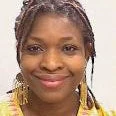Compared to Dakar, from where I traveled to get to my job at the World Bank, the city of Bamako is the image of tranquility, with sultry temperatures and long siestas, as described so vividly by Albert Londres in Terre d’Ebène. An invaluable work for understanding the Mali of the past, and perhaps the present? There has definitely been a shift, but the country is still known for the heat and a certain languor. It depends on imports from neighboring countries for everything, particularly goods and services, “and even fashion, or ideas!” a friend sometimes notes with irony.
Pffft! He couldn’t be more wrong!
With almost 2.5 million inhabitants, Bamako, the “The City of three Caimans” (the slogan on its Coat of Arms), is advancing and innovating, open to discovery thanks to its dynamic youth, who are breaking down barriers and challenging the status quo. Some young people, for example, are undertaking activities aimed at improving the daily lives of urban residents or bringing solar energy to rural areas. These ventures are carefully considered and developed, with the help of idea generators and incubators that step in to provide work spaces and support startups. Like Impact Hub, with 55 members and 38 startups.
To foster this dynamic, the World Bank is supporting these initiatives through the Mali Support to Agroindustrial Competitiveness Project (PACAM), which offers tailored advice to young Malians in order to help them achieve their full potential and design innovative, employment-generating projects.

Abdoulaye Gackou is one such young talent. After a trip to his native village, this engineer decided to get involved in solar energy by creating the solar energy equipment company “Yeelen solar” (Light of Africa), along with Moussa Camara, in order to provide electricity in rural areas using a simple, user-friendly device: the Solarbox.
Composed of a powerful LED projector, solar panels, and batteries, this customizable box provides lighting as well as energy for household appliances such as refrigerators and televisions, or even for mobile telephones. “The advantage is that it is portable and wireless. It can be installed anywhere, including in the most remote villages,” Abdoulaye Gackou shared with me. “Only two to three boxes would be needed to light the streets of a small village, recharge the lamps in homes, and operate the electrical appliances.”

Like Abdoulaye, Boubacar Keïta is aware of the challenges posed by urbanization in Bamako and wants to provide the city with innovative solutions. Together with other young people, this environmental and sustainable land development engineer created Map Action, an application that combines interactive cartography and geolocation with citizen engagement. “Citizens and staff members from the technical departments of town halls and government ministries use a mobile application installed on their telephones to geolocate problematic areas in Bamako,” Boubacar explained. “The goal is to collect, analyze, and submit the data to improve urban and environmental management.”
Their motto: “Using technological innovation to solve urban problems.” And the Malian capital certainly has its share of urban problems, particularly in the areas of mobility and sanitation. The existing supply of public services is either inadequate or poorly adapted to the ever-increasing population. For example, the drinking water supply does not reach all neighborhoods and access to health care is still a challenge for a number of residents.
Map Action facilitates the establishment of a list of these shortcomings and helps the authorities find solutions. Currently in the pilot phase, the app covers only two of the six communes in the Malian capital at the moment, but is expected to extend further. It also won the Water Innovation Challenge II competition organized by Via Water and was submitted as an innovative climate solution at the 23rd international climate change conference, COP23, in Bonn, Germany.

Bamako is also making strides in the agri-food industry and is embarking on organic production, with more and more local products being processed under this label. It is no longer a matter of being trendy, but rather reflects a need to lead a healthy life and eliminate the dangers associated with the use of certain phytosanitary products in agriculture and livestock production. Impact Hub Bamako is collaborating with emerging agribusiness startups like Boubou Lait, a small dairy cooperative that allows for the storage of fresh, local, additive-free milk and offers other organic and natural products like yogurt, curds, cheese, and ghee (local butter).
“This idea came to me when I was living in Djenné and noticed that there was a considerable volume of dairy production--35,600 liters per day--of which 10,000 liters remained unsold. Women spent days traveling between villages to sell their dairy products. Eventually, the milk would lose its value, spoil, and end up in the river because of a lack of storage facilities,” explained Boubou Sangho, founder of Boubou Lait and winner of The Next Economy’s Best Crazy Crowdfunder prize as well as the prize for Best African Startup 2017 in the “agriculture” category.
These initiatives, among so many others, demonstrate that Mali is brimming with talent and ideas.


Join the Conversation